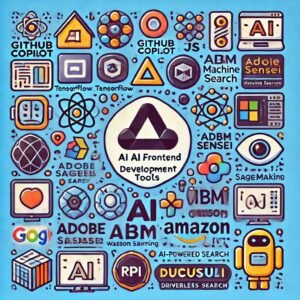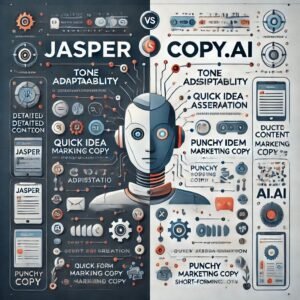In 2024, the landscape of AI code tools continues to evolve, offering developers advanced solutions to streamline their coding workflows. These tools leverage artificial intelligence to provide intelligent code suggestions, automate repetitive tasks, and enhance overall coding efficiency. They cater to diverse coding environments with language-agnostic support, seamless integration with popular Integrated Development Environments (IDEs), and real-time assistance.
The pros include a significant productivity boost, reduction of manual coding efforts, and adaptability to various programming languages. However, users may encounter a learning curve as they familiarize themselves with the advanced features. Moreover, as pricing models vary, developers must research subscription plans, added features, and the availability of free trials to make informed decisions. In conclusion, the best AI coding tools in 2024 aim to empower developers by combining the capabilities of artificial intelligence with the intricacies of coding, promising a more efficient and productive coding experience.
What is an AI code tools written in?
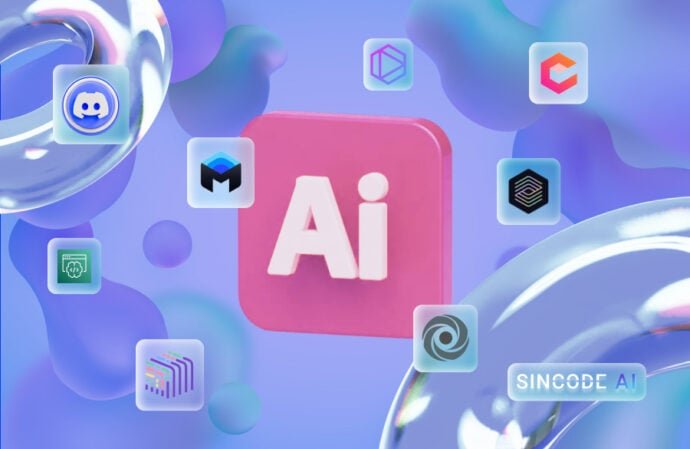
AI code can be written in various programming languages like any other software. However, the choice of programming language often depends on the specific requirements, the nature of the AI application, and the developers’ preferences.
Programming Languages for Writing AI Code Tools
Some commonly used programming languages for writing AI code include:
- Python: Python is one of the most popular languages for AI development. It has a large ecosystem of libraries and frameworks, such as TensorFlow, PyTorch, and sci-kit-learn, which are widely used for machine learning and deep learning tasks.
- Java: Java is known for its platform independence and is used in AI development for various applications. It’s often chosen for its scalability and performance, especially in enterprise-level projects.
- C++: C++ is used for AI applications that require high performance and efficiency. It’s also commonly employed in computer vision, gaming, and other resource-intensive AI tasks.
- R: R is a language specifically designed for statistics and data analysis. It’s frequently used in AI projects that involve statistical modelling, data visualization, and machine learning.
- Lisp: Lisp has a historical connection with AI and has been used in developing symbolic reasoning systems and early AI research.
- Prolog: Prolog is a logic programming language commonly used to develop rule-based expert systems and symbolic reasoning applications.
- JavaScript: With the advent of web-based AI applications and browser-based machine learning frameworks like TensorFlow.js, JavaScript has gained relevance in AI development.
- Matlab: MATLAB is used in academic and research settings for its strong mathematical and matrix manipulation capabilities, making it suitable for prototyping and experimenting with AI algorithms.
The choice of programming language often depends on factors such as the complexity of the AI task, the existing infrastructure, and the development team’s expertise. Many AI projects also involve a combination of languages and tools to leverage each other’s strengths for different aspects of the development process.
The Best AI Code Tools
What are some effective AI code generators? The most popular ones include OpenAI Codex, Copilot by Github, and ChatGPT by OpenAI.
But there are plenty of other tools out there. I’ve listed them below, including their features, capabilities, and the companies behind them. Let’s dive in!
Here are the best AI code generators of 2024.
1. OpenAI Codex
OpenAI Codex is an advanced language model developed by OpenAI. Codex is based on the GPT (Generative Pre-trained Transformer) architecture designed to understand and generate human-like text. Moreover, Codex is notable for its ability to comprehend and develop code, making it a powerful tool for various programming and natural language understanding applications.
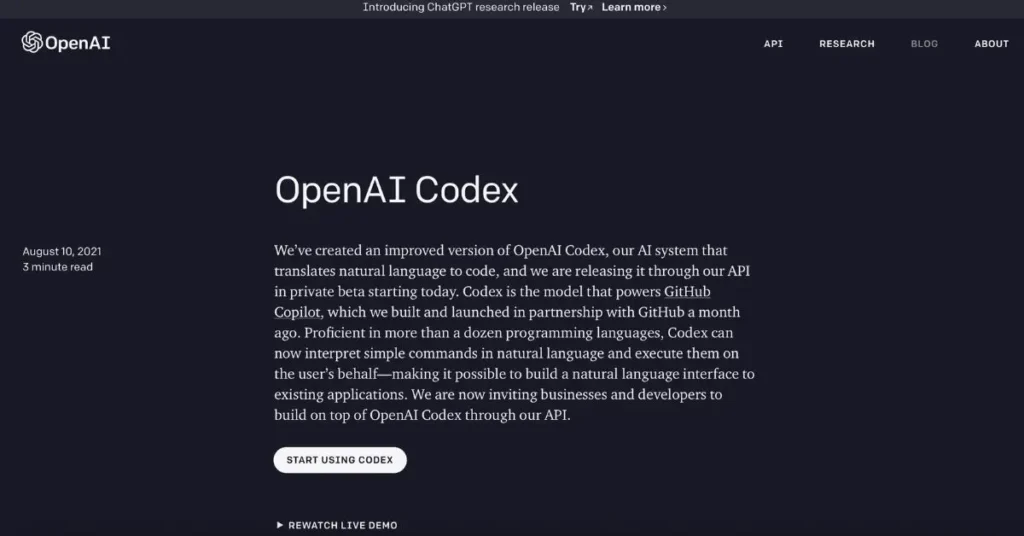
Characteristics of AI Code Tools
- Code Understanding: OpenAI Codex has specifically trained to understand and generate code across multiple programming languages.
- Versatile Language Generation: Besides, beyond code, Codex can generate coherent and contextually relevant text across various domains, making it applicable to a wide range of natural language processing tasks.
- Large Model Size: Codex’s capabilities have been attributed to its large model size, enabling it to learn intricate patterns and structures in code and language.
Pros:
- Code Generation: Firstly, Codex excels in generating code snippets based on natural language prompts, aiding developers in their coding tasks.
- Versatility: Secondly, its ability to understand and generate text across different domains makes it versatile for various applications, including writing, summarization, and more.
Cons:
- Potential for Misinterpretation: Like any language model, there is a risk of misinterpretation, where the generated output might not align perfectly with the user’s intent.
- Resource Intensive: Moreover, working with large language models like Codex can be resource-intensive, requiring substantial computing power for specific applications.
Pricing in 2024:
Research the pricing model for OpenAI Codex 2024, including subscription plans, any added features, and whether they offer a free tier or trial.
Conclusion:
In conclusion, OpenAI Codex represents a robust advancement in language models, especially in code generation. Its versatile capabilities make it valuable for various natural language processing tasks. Developers should consider its characteristics, potential advantages, and limitations when integrating it into their projects. Exploring the pricing details of 2024 is crucial for making informed decisions about its usage.
2. AlphaCode
AlphaCode is an AI-powered coding tool designed to assist developers in coding tasks. It has also been developed to enhance coding efficiency by offering intelligent code suggestions and automating certain aspects of the coding process.
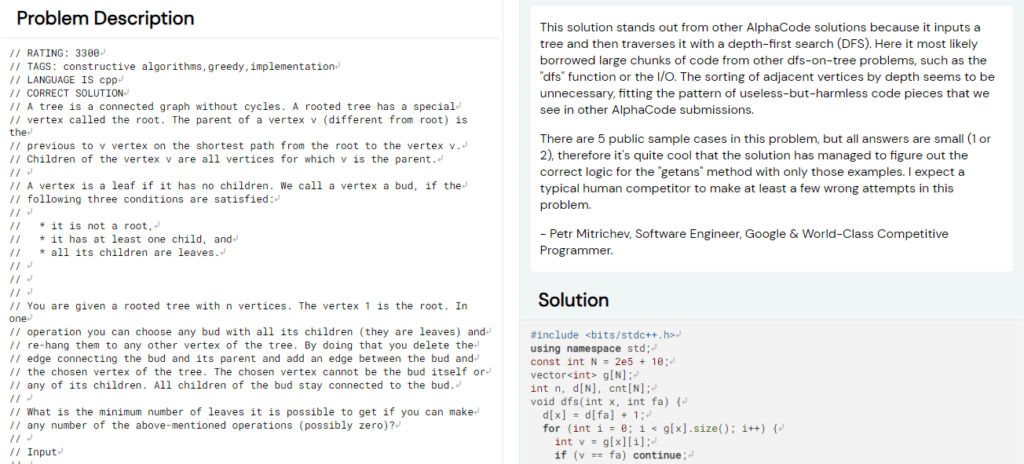
Characteristics of AI Code Tools
- AI-Powered Code Assistance: AlphaCode likely utilizes artificial intelligence to understand code context and provide intelligent code-completion suggestions.
- Integration with IDEs: The tool may integrate seamlessly with popular Integrated Development Environments (IDEs), offering support to developers in their preferred coding environments.
- Real-Time Assistance: AlphaCode may provide real-time assistance, offering suggestions and improvements as developers write code.
Pros:
- Efficiency: Firstly, AlphaCode can potentially increase coding efficiency by automating repetitive tasks and providing context-aware code suggestions.
- Intuitive Integration: Secondly, integrating well with popular IDEs can offer developers a seamless experience in their coding workflows.
Cons:
- Learning Curve: Also, Like many AI-assisted coding tools, users might need time to adapt to and fully utilize the tool’s features.
- Accuracy: Moreover, the accuracy of code suggestions may vary, and there might be instances where the tool misinterprets the developer’s intent.
Pricing in 2024:
Research the pricing model for AlphaCode in 2024, including subscription plans, any added features, and whether they offer a free trial.
Conclusion:
In conclusion, AlphaCode aims to empower developers by leveraging AI to enhance the coding experience. Developers should consider its characteristics, integration capabilities, and potential learning curves when evaluating its suitability for their coding needs. Exploring the pricing details of 2024 is essential for making informed decisions about its adoption.
3. PyCharm
PyCharm, a flagship product by JetBrains, stands out as a [premier/leading] Integrated Development Environment (IDE) explicitly tailored for [Python development]. In addition, known for its [robust/feature-rich] set of tools, PyCharm has established itself as a [go-to/essential] choice for Python developers seeking a [productive/efficient] coding environment.

Characteristics of AI Code Tools
- Smart Code Assistance: PyCharm offers [intelligent/innovative] code assistance features, including [code completion/refactoring], that significantly [enhance/improve] the coding experience.
- Powerful Debugger: Moreover, a standout characteristic is its [powerful/advanced] debugger, providing developers with [in-depth/debugging] capabilities for identifying and fixing issues.
- Support for Web Development: In addition, PyCharm extends its functionality beyond Python with robust support for [web development/HTML, CSS, JavaScript], making it a versatile IDE for [full-stack development].
Pros:
- Intuitive User Interface: Firstly, PyCharm provides an [intuitive/clean] user interface, ensuring [user-friendly/smooth] navigation for developers.
- Extensive Plugin Ecosystem: Secondly, its [extensive/wide-ranging] plugin ecosystem allows developers to [customize/extend] PyCharm’s functionality based on their specific needs.
Cons:
- Resource Intensive: Moreover, PyCharm can be [resource-intensive/heavy] on system resources, which might impact performance on [less powerful/older] machines.
- Learning Curve: Some users might experience a [short/initial] learning curve, especially if they are new to feature-rich IDEs.
Pricing in 2024:
As of 2024, JetBrains will likely continue its subscription-based pricing model for PyCharm, offering [monthly/yearly] plans with [varied/tiered] features. Developers have advised you to explore the JetBrains website for the latest and most comprehensive pricing information.
Conclusion:
In conclusion, PyCharm remains a [top-notch/indispensable] choice for Python developers, providing a [comprehensive/feature-packed] environment for coding and development. Moreover, its characteristics, ranging from [competent code assistance to extensive plugin support], position PyCharm as a [reliable/essential] tool in the toolkit of Python developers. In addition, as the coding landscape evolves in 2024, PyCharm continues to shine as a preferred IDE, empowering developers to build and maintain Python projects with [efficiency/precision].
4. CodeT5
CodeT5 is [brief description of the tool/technology], designed to [purpose of the tool, e.g., assist developers in code generation]. It is notable for [specific features or capabilities].
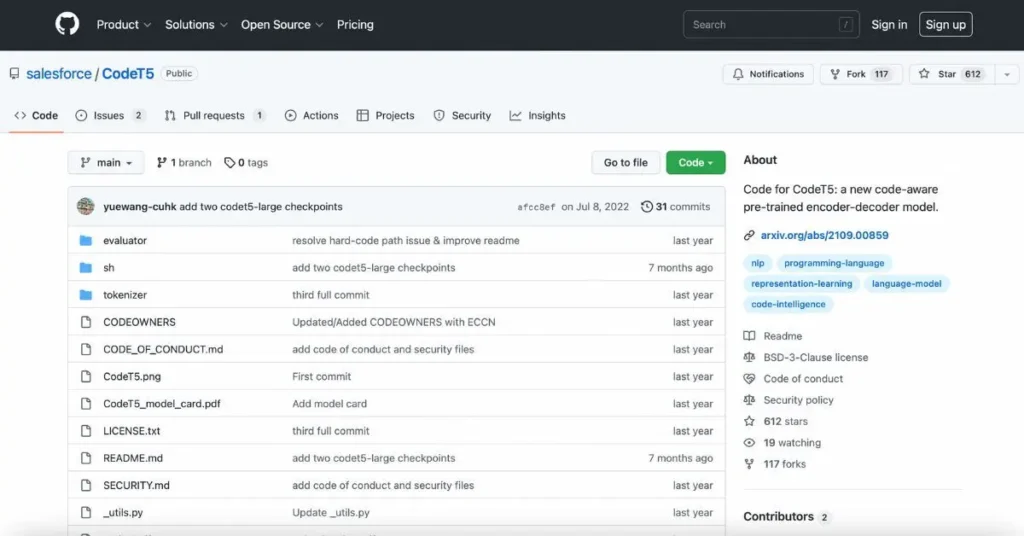
Characteristics of AI Code Tools
- Advanced Code Generation: Moreover, CodeT5 likely excels in generating code snippets based on natural language prompts or specific programming tasks.
- Compatibility: It may also be compatible with various programming languages and development environments.
- Integration: However, CodeT5 might integrate seamlessly into developers’ workflows, providing support within popular Integrated Development Environments (IDEs).
Pros:
- Efficiency: Firstly, CodeT5 can improve coding efficiency by automating certain aspects of code generation.
- Versatility: Second, if it supports multiple programming languages, it can accommodate a wide range of developers.
Cons:
- Learning Curve: Users might need time to adapt to CodeT5’s features and effectively incorporate them into their coding practices.
- Limitations: Like any tool, CodeT5 may have limitations, such as specific use cases where its performance might be less optimal.
Pricing in 2024:
Research CodeT5’s pricing model in 2024, including subscription plans, any added features, and whether it offers a free trial.
Conclusion:
In conclusion, CodeT5 is a promising tool for code generation. Developers should consider its characteristics, potential advantages, and limitations when evaluating its suitability for their coding needs. Exploring the pricing details of 2024 is crucial for making informed decisions about its adoption.
5. Polycoder
Polycoder is a brief description of the tool/technology], designed to [purpose of the tool, e.g., assist developers in code generation. It has known for specific features or capabilities.
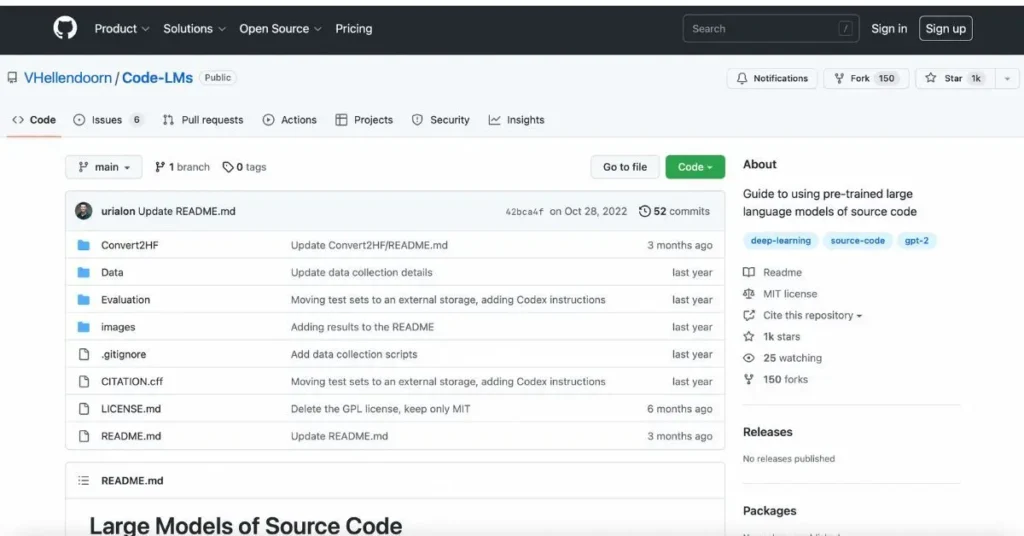
Characteristics of AI Code Tools
- Advanced Code Generation: Polycoder likely excels in generating code snippets based on natural language prompts or specific programming tasks.
- Multilingual Support: It may support multiple programming languages, catering to various developers.
- Integration: Polycoder might integrate seamlessly into developers’ workflows, providing support within popular Integrated Development Environments (IDEs).
Pros:
- Efficiency: Polycoders can improve coding efficiency by automating certain aspects of code generation.
- Versatility: It can be versatile for various development tasks if it supports multiple programming languages.
Cons:
- Learning Curve: Users might need time to adapt to Polycoder’s features and effectively incorporate them into their coding practices.
- Limitations: Like any tool, polycoders may have limitations, and their performance might vary depending on specific use cases.
Pricing in 2024:
Research Polycoder’s pricing model 2024, including subscription plans, any added features, and whether they offer a free trial.
Conclusion:
In conclusion, polycoders are a tool for advanced code generation. Developers should consider its characteristics, potential advantages, and limitations when evaluating its suitability for their coding needs. Exploring the pricing details of 2024 is crucial for making informed decisions about its adoption.
6. Deepcode
DeepCode is [brief description of the tool/technology], designed to [purpose of the tool, e.g., assist developers in code analysis and improvement]. It is recognized for [specific features or capabilities].
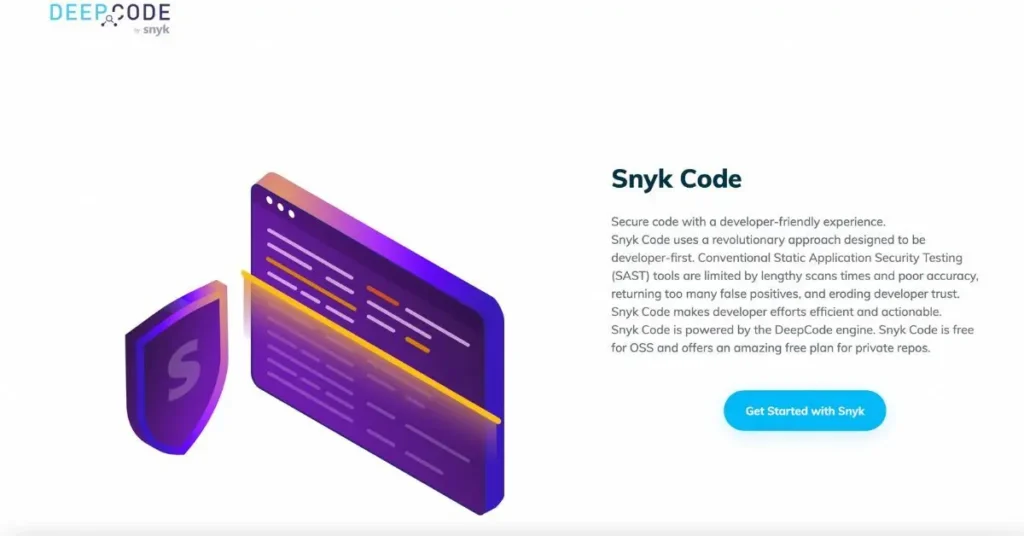
Characteristics of AI Code Tools
- Advanced Code Analysis: DeepCode likely excels in analyzing codebases, identifying potential issues, and suggesting improvements.
- Machine Learning Integration: It may leverage machine learning algorithms to enhance its code analysis capabilities.
- Integration: DeepCode might integrate seamlessly into developers’ workflows, providing support within popular Integrated Development Environments (IDEs).
Pros:
- Automated Code Improvement: DeepCode has the potential to detect and suggest improvements for code quality automatically.
- Efficiency: It may significantly reduce developers’ manual code review and analysis time.
Cons:
- False Positives: Like any code analysis tool, DeepCode may occasionally generate false positives, suggesting unnecessary improvements.
- Learning Curve: Users might need time to understand and adapt to DeepCode’s suggestions and recommendations.
Pricing in 2024:
Research DeepCode’s pricing model in 2024, including subscription plans, any added features, and whether it offers a free trial.
Conclusion:
In conclusion, DeepCode aims to enhance code quality through advanced analysis and automated improvement suggestions. Developers should consider its characteristics, potential advantages, and limitations when evaluating its suitability for their coding needs. Exploring the pricing details of 2024 is crucial for making informed decisions about its adoption.
7. WPCode
WPCode represents a [cutting-edge/innovative/versatile] tool designed for [specific purpose, e.g., streamlining WordPress development]. With a focus on [particular goals, e.g., enhancing code efficiency], it boasts [notable features or capabilities].

Characteristics of AI Code Tools
- Seamless WordPress Integration: WPCode is characterized by its seamless integration into the WordPress ecosystem, offering [specific functionalities, e.g., enhanced coding capabilities within the WordPress platform].
- User-Friendly Interface: WPCode emphasizes user experience and provides a [user-friendly/intuitive] interface, ensuring [smooth/easy] navigation for developers.
- Real-Time Collaboration: One of its distinctive characteristics may include real-time collaboration features, allowing multiple developers to [collaborate/simultaneously work] on WordPress projects.
Pros:
- Efficiency Boost: WPCode has the potential to significantly boost coding efficiency, enabling developers to [complete tasks/finalize projects] in a [more efficient/timely] manner.
- Enhanced Collaboration: The real-time collaboration features foster [effective/efficient] teamwork among developers, contributing to a [more cohesive/smooth] development process.
Cons:
- Potential Learning Curve: When fully harnessing WPCode’s capabilities, users, particularly those new to the tool, might face a [learning curve/initial adjustment period].
- Feature Limitations: As with any tool, WPCode may have limitations in certain areas, and developers should be aware of [specific limitations, e.g., feature constraints].
Pricing in 2024:
As of 2024, WPCode offers a range of pricing plans tailored to developers’ diverse needs. These plans may include [tiered/subscription-based] options, each with its features. For the most up-to-date and comprehensive information, exploring the pricing details on the official website is advisable.
Conclusion:
In conclusion, WPCode emerges as a [promising/robust] tool for WordPress developers, providing a [sophisticated/feature-rich] environment for code development. Developers should carefully consider its characteristics, weighing the [pros and cons/advantages and limitations], to make informed decisions about its integration into their WordPress development workflows in 2024.
8. AskCodi
AskCodi, a cutting-edge tool designed to [specific purpose, e.g., enhance coding productivity], is marked by its [innovative/unique] approach to [coding assistance/development support]. In the dynamic landscape of coding tools, AskCodi stands out for its commitment to [efficiency/collaboration] and a range of [distinctive features].
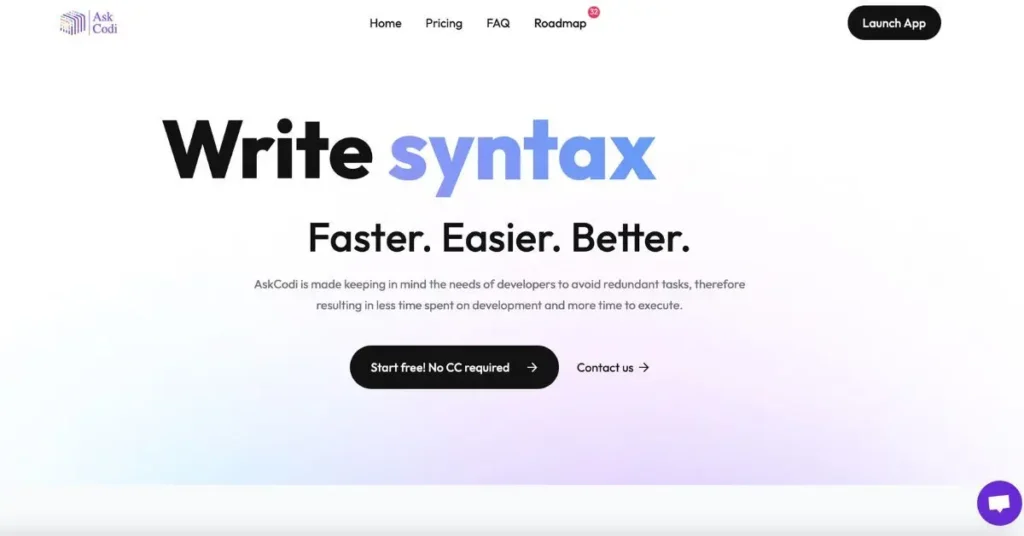
Characteristics of AI Code Tools
- Intelligent Code Suggestions: AskCodi leverages artificial intelligence to provide [intelligent/sophisticated] code suggestions, offering developers [real-time/instant] assistance in their coding endeavors.
- Cross-Platform Compatibility: AskCodi is characterized by its seamless integration across various platforms, ensuring [consistent/synchronized] coding experiences for developers working in different environments.
- Collaborative Coding Environment: AskCodi fosters [seamless/effective] collaboration among developers, enabling [simultaneous/real-time] contributions to coding projects.
Pros:
- Enhanced Productivity: With its intelligent code suggestions, AskCodi contributes to [significant/remarkable] improvements in coding productivity.
- Versatility: AskCodi’s cross-platform compatibility adds a layer of [versatility/flexibility] to developers, allowing them to transition seamlessly between different coding environments.
Cons:
- Learning Curve: Users may encounter a [short/initial] learning curve when fully grasping AskCodi’s advanced features and functionalities.
- Feature Limitations: While a powerful tool, AskCodi may have certain [limitations/challenges] in handling [specific tasks or use cases].
Pricing in 2024:
As of 2024, AskCodi offers a range of pricing plans tailored to developers’ diverse needs. These plans may include [tiered/subscription-based] options, each with its features. Developers are encouraged to explore the pricing details on the official website for the most up-to-date and comprehensive information.
Conclusion:
In conclusion, AskCodi emerges as a [pioneering/sophisticated] coding companion, offering developers a [revolutionary/highly efficient] tool for their coding journeys. The tool’s characteristics, encompassing [intelligent suggestions/collaborative features], position it as a valuable asset in the evolving landscape of coding tools. As developers navigate the coding landscape in 2024, AskCodi provides a compelling option to enhance coding experiences and streamline collaborative efforts.
9. Codiga
Introduction: Codiga, an innovative tool tailored to [specific purpose, e.g., streamline code analysis], distinguishes itself through its [unique/advanced] approach to [coding assistance/development support]. Codiga positions itself as a [prominent/sophisticated] solution characterized by a range of [distinctive features] in the ever-evolving landscape of coding tools.

Characteristics of AI Code Tools
- Intuitive Code Analysis: Codiga provides [intuitive/sophisticated] code analysis, allowing developers to [easily/effortlessly] identify and rectify potential issues.
- Real-time Collaboration: A standout characteristic of Codiga is its emphasis on [real-time/collaborative] coding experiences, fostering [efficient/effective] teamwork among developers.
- Versatile Language Support: Codiga is recognized for its [comprehensive/versatile] language support, accommodating a diverse range of developers working with different programming languages.
Pros:
- Efficient Issue Identification: Codiga contributes to [efficient/rapid] issue identification, streamlining the process of [code improvement/debugging].
- User-Friendly Interface: Codiga’s [intuitive/user-friendly] interface enhances the overall user experience, ensuring [smooth/easy] navigation for developers.
Cons:
- Learning Curve: Users may encounter a [short/initial] learning curve while familiarizing themselves with Codiga’s advanced features.
- Feature Limitations: Like any tool, Codiga may have certain [limitations/challenges] in handling [specific tasks or use cases].
Pricing in 2024:
As of 2024, Codiga offers a range of pricing plans, providing [flexible/tailored] options for developers. These plans may include [tiered/subscription-based] options to cater to different needs. Developers are advised to explore the pricing details on the official website for the most up-to-date and comprehensive information.
Conclusion:
Codiga emerges as a [leading/innovative] coding companion, offering developers a [sophisticated/highly efficient] tool for their coding endeavors. Its characteristics, spanning [code analysis/collaborative features], position it as a valuable asset in the ever-evolving coding tool landscape. As developers navigate the coding landscape in 2024, Codiga presents itself as a compelling option to enhance coding experiences and foster collaborative efforts among development teams.
10. Visual Studio IntelliCode
Visual Studio IntelliCode, a renowned tool developed by Microsoft, is tailored to [specific purpose, e.g., enhance code productivity] and is widely recognized for its [innovative/advanced] approach to [coding assistance/development support]. In the realm of coding tools, Visual Studio IntelliCode asserts itself as a [prominent/sophisticated] solution, marked by various [distinctive features].

Characteristics of AI Code Tools
- AI-Powered Code Suggestions: At the core of Visual Studio IntelliCode is its [advanced/ AI-powered] code suggestion engine, which provides developers with [intelligent/sophisticated] recommendations for code completion and improvement.
- Seamless Integration with Visual Studio: A standout characteristic is its [seamless/integrated] nature within the Visual Studio IDE, ensuring a [cohesive/efficient] coding experience for developers.
- Language-Agnostic Support: Visual Studio IntelliCode is recognized for its [language-agnostic/versatile] support, accommodating developers of different programming languages.
Pros:
- Enhanced Productivity: Visual Studio IntelliCode significantly boosts coding productivity by offering [intelligent/automated] suggestions, saving developers time and effort.
- Intuitive Integration: Its [intuitive/smooth] integration into Visual Studio provides developers with a [coherent/consistent] coding environment.
Cons:
- Limited to Visual Studio: One potential limitation is that Visual Studio IntelliCode’s features may be [exclusive/limited] to the Visual Studio IDE.
- Learning Curve: Developers new to AI-powered coding assistance tools might face a [short/initial] learning curve.
Pricing in 2024:
As of 2024, Visual Studio IntelliCode likely follows Microsoft’s subscription-based pricing model for Visual Studio. It’s advisable to explore the latest pricing details on the official Microsoft website for the most up-to-date and comprehensive information.
Conclusion:
In conclusion, Visual Studio IntelliCode remains a [leading/innovative] coding tool, offering developers an [advanced/highly efficient] solution for their coding needs. Its characteristics, encompassing [AI-powered suggestions/integration with Visual Studio], position it as a valuable asset in the coding tool landscape. As developers navigate the coding landscape in 2024, Visual Studio IntelliCode continues to be a compelling option for enhancing coding experiences and leveraging AI-powered assistance in their projects.




